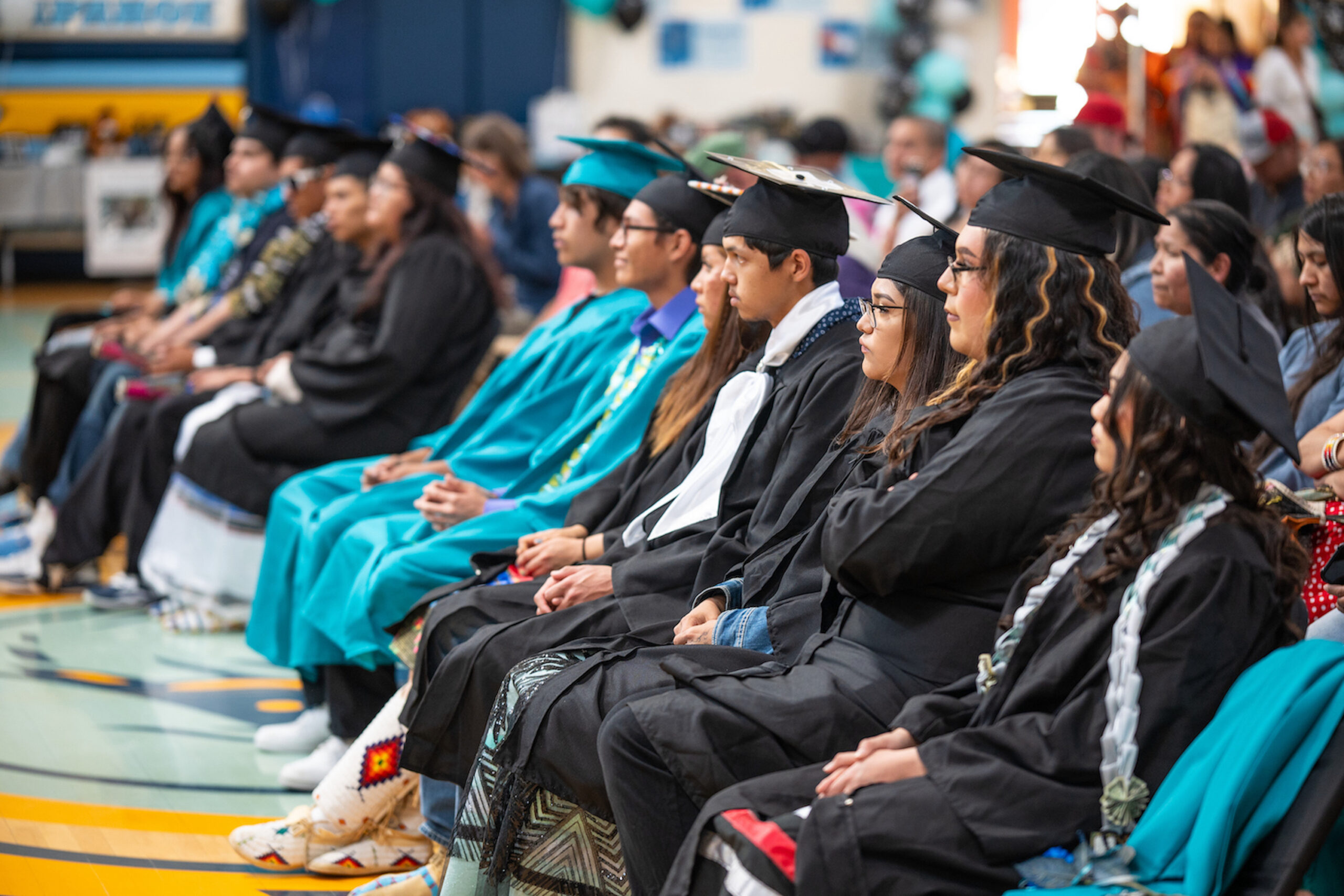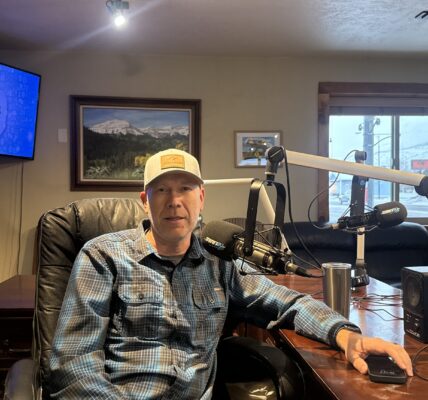Native student tuition waivers now in University of Wyoming’s court

• ‘Circular’ conversation between lawmakers and UW trustees ends with university commitment after senator asks: ‘Can we just not keep kicking this down the road?’
By Katie Klingsporn, WyoFile.com
University of Wyoming President Ed Seidel committed Thursday to spearheading an effort to define what Native student tuition waivers could look like at Wyoming’s sole public, four-year college.
He made the commitment after a “circular” conversation between UW trustees and state lawmakers about which entity is responsible for initiating such a plan. Thursday’s conversation followed years of education leaders and lawmakers batting the concept around.
It also came after outgoing Sen. Affie Ellis (R-Cheyenne) — the state’s sole Indigenous lawmaker — urged officials at the UW Board of Trustees meeting to take the lead on the initiative. The topic has persisted for six years with no tangible results, Ellis said.
“We need to start moving on things,” she said. “Can we just not keep kicking this down the road?”
What a UW Native student tuition waiver would look like and if it would ultimately win approval are far from decided. Advocates have argued that a waiver would lower barriers and encourage more Native American students to enroll in higher education, where their participation and graduation rates lag. Others say universities that have benefited financially from ancestral tribal lands, like UW, have ethical obligations to the state’s Native American residents.
History
Representatives of both the Eastern Shoshone and Northern Arapaho tribes — who occupy Wyoming’s Wind River Indian Reservation — proposed a tuition waiver for Indigenous UW students in 2018.
Several states, including Montana, Maine and Nevada, offer free tuition to eligible Native students attending public colleges. The idea behind such waivers is to remove financial barriers that keep Indigenous students from higher education and to address historical inequities.
UW, for example, is a land grant university, meaning revenue from lands the federal government gave to Wyoming helped generate the school’s endowment. The United States took ownership of vast swaths of those lands from tribes — sometimes for little or no money — and gifted them to the new state to benefit public education. Institutions like UW still receive the funds generated from leasing of the lands.
Nothing concrete came from the 2018 requests, but the issue came up again this spring after Alyson White Eagle, a research assistant and student in the UW College of Law, zeroed in on Native tuition waivers for a research project. White Eagle, who is Northern Arapaho, presented her findings to the Legislature’s Select Committee on Tribal Affairs in May.
White Eagle pointed to the acquisition of lands. “UW has made a return on revenue generated from the sale of these lands from the Morrill Act at a rate of 321 times,” she said. “Despite this considerable revenue generation, UW’s Native student population, native faculty [and] staff population is pretty low.”
Less than 1% of the UW student body reports to be Native American or Alaskan Native, which is compared to 4% of the state population holding tribal affiliations, according to her report. Retention and graduation rates among Indigenous students also lag behind the general student population.
The chief scholarships for Eastern Shoshone and Northern Arapaho students, White Eagle said, are the Northern Arapaho Endowment, the Northern Arapaho Sky People Endowment and the Chief Washakie Endowment. But “what we found was that the amount of applicants far exceeded the availability of scholarship monies … so a lot of students missed out.”
This disparity results in higher loan debt and a higher cost-of-living burden, she reported, and “the financial need faced by Native students at UW extends beyond what most students can reasonably manage while they pursue a higher education.”
UW is in a position to strengthen its relationship with tribes and support Native students, who often experience culture shock as first-generation college students — a hurdle that is only heightened by financial challenges, she said.
“It’s hard to be down here, it’s hard to be one of the only ones in these classrooms sometimes,” she said of her personal experience, “and to kind of feel like nobody knows the struggles of pursuing a higher education as a Native student.”
Kick-started
White Eagle’s research sparked a renewed conversation into the feasibility of UW providing tuition waivers for Indigenous students, though questions have hovered over which entity takes the lead — the Legislature, university or the tribes themselves.
The conversation led Tribal Affairs Select Committee Co-chairs Sen. Ellis and Rep. Ember Oakley (R-Riverton) along with several tribal representatives, to attend Thursday’s UW Trustees meeting. Ellis began by urging the university to take the reins.
“As someone who’s been trying to dive into this, it’s very clear to me that we need the university’s leadership and partnership on this, because you hold the information, you live in this space,” she said. “My experience in the Legislature is: The university comes up with a plan and they come to the Legislature for money.”
Ellis doesn’t believe there’s a legislative appetite to create a new endowment, she added, suggesting instead that parties look into expanding the three existing tribal scholarship endowments. University data indicate that the number of Northern Arapaho and Eastern Shoshone students in need is about 40, she said, which is a starting place for exploring how much money is required.
Trustees and tribal representatives voiced their support of looking into the concept, but the conversation looped in circles before UW President Seidel committed to driving the effort. UW is already working with community colleges like Central Wyoming College to discuss partnerships on tribal student education, Seidel said.
He has also done some calculations and estimates a program for tuition waivers would cost about $12 million, he said. “It might be within reach if we were to have a program that helped match it” with state dollars.
It’s a good place to start, Ellis said, emphasizing the need to consult with the tribes and other stakeholders. Seidel said he will get the ball rolling.
Wyoming Community College Commission Executive Director Ben Moritz, who has also watched the conversation go round and round, said he is pleased with the momentum.
Over the years, “the topic comes up. Everybody agrees that it’s important,” he said. “And then somebody points to, ‘well, but we don’t know this number or but we don’t know what this is.’ And then people shrug and walk away, and then it doesn’t work … And I see this as very promising, and I think that the math that you’re doing on the back of the envelope there, Dr. Seidel, is how we start getting there.”
WyoFile is an independent nonprofit news organization focused on Wyoming people, places and policy.





